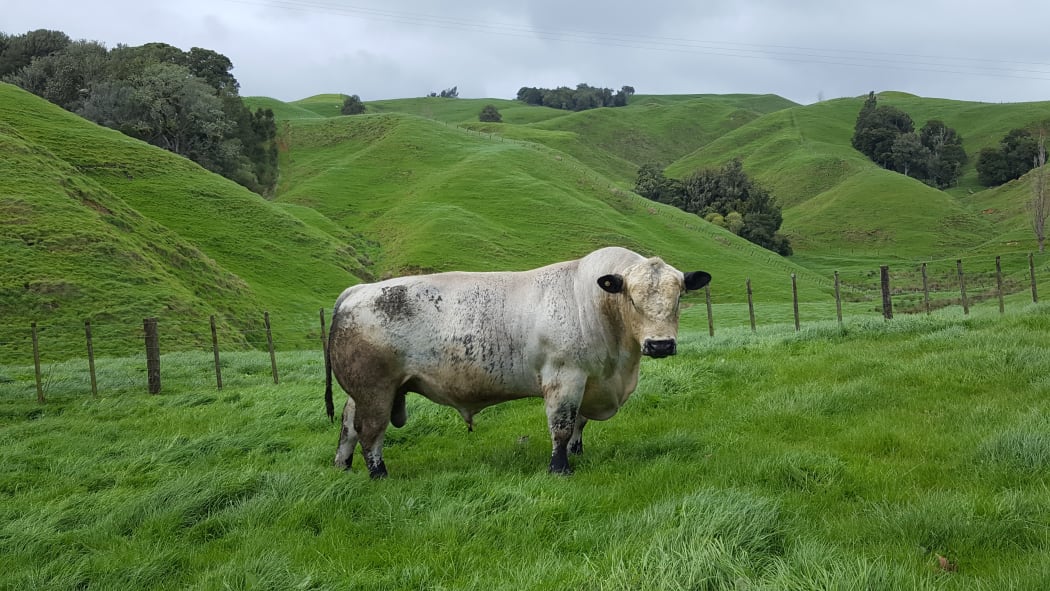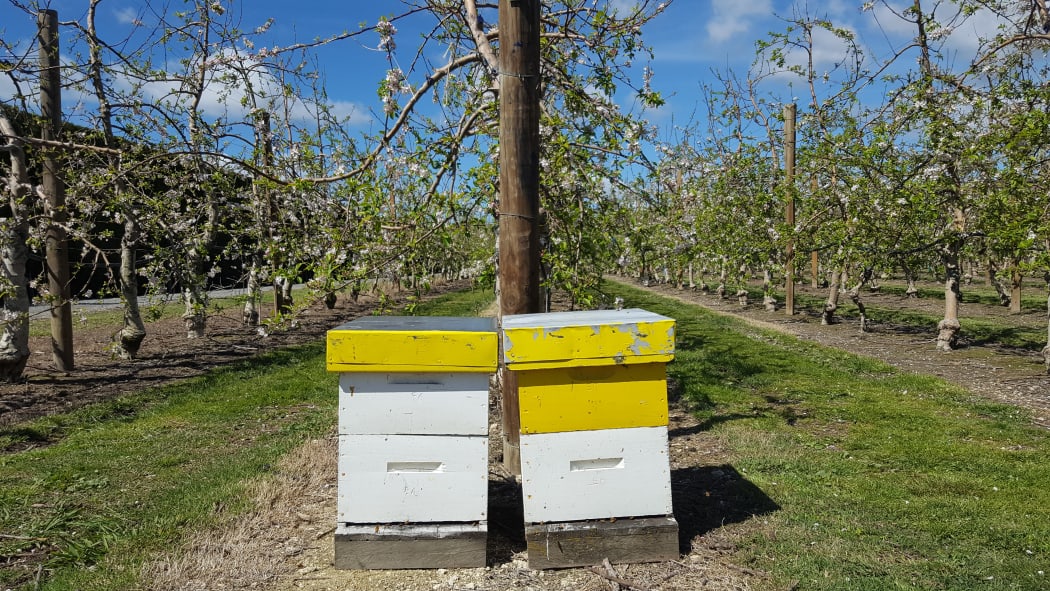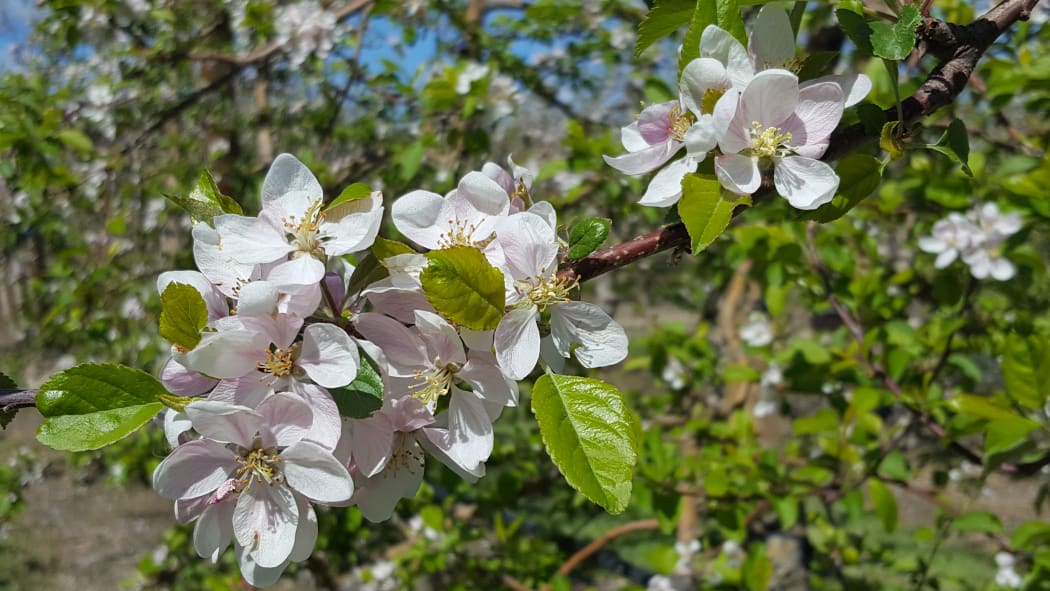Northland's in a great position - soil moisture is at an optimum level - better than this time last year - and there's very good grass growth so there'll be little need for supplementary feeding a bit further down the track. Mating's starting on dairy farms. Farmer morale is low - especially now the banks are insisting they move from only paying interest on their mortgages to paying principal as well.
Around Pukekohe the weather's been unsettled with intermittent rain, showers, wind and a little hail. Cool conditions and low light continue to suppress crop growth. Outdoor vegetable growers are taking whatever limited opportunity they have to get work done.
Waikato has been having cool nights. There's been rain and sun this week and quite a bit of wind. Despite being coolish overall grass growth is romping away and some farmers are shutting up paddocks for silage - which is early. Cows are in good nick as they head into the mating period. A sale of young Speckle Park cattle on a Waikato farm this week fetched good prices. The top heifer sold for just over $25,000. And Tatua suppliers will be celebrating. The tiny Waikato co-op announced this week its farmers will be receiving $9.66 per kilogram of milk solids although the company will retain $1.16 of that for investment in the business. That compares to Fonterra's payout of $6.35.

Photo: RNZ / Carol Stiles
In Bay of Plenty the wind had finally stopped blowing by the end of the week - it had been really unpleasant working outside and had stopped farmers who dock in the paddock, putting up scrim to make temporary yards. Lambing percentages are only average. Feed on sheep and beef properties is adequate but more plentiful on dairy farms.
King Country's had a week of wind, rain and squally showers but the weather had calmed down by Friday. Farmers have been waiting to crack on with docking so will have spent Friday making the most of the fine weather.
Taranaki's been having a typically spring week - sunny one minute and hosing down the next. There's been snow to quite low levels on the mountain and some hail. Generally it's been cold for the time of the year. Most would say milk flow is good but it would be better with more settled weather. It's the same for pasture growth - good but not as good as it could be. Farmers have been going to meetings where they can fit them in - Fonterra's annual results meeting and the Action for Healthy Water Ways consultation meetings.
The East Coast's also been having four seasons in about two hours most days this week. The consultant we speak to says they'll still take every drop of rain they can get though. It's needed to fill dams to give farmers a bit of confidence going in to summer. Docking's well and truly underway for most guys who are generally tight lipped about how it has gone. They want to hear what their neighbour says first! Survival has been outstanding and lambs have grown well. Tuesday's cattle fair was buoyant. There's a lot of protein missing in Asia because of swine flu and people are hoping the gap will be filled by NZ beef.

Photo: RNZ / Carol Stiles
Hawke's Bay orchardists who had invested in net covers for their orchards will be relieved they did after hail pummelled trees this week. Apple orchards have seen varying degrees of damage. It will take a while for the extent to be revealed. There's talk of a poor summer fruit season this year because of the hail and some grape vines are also bruised and battered. It was the worst hail storm since the early 1990s.
Ruapehu looked stunning under clear blue skies on Friday but earlier the weather which hit Rangitikei and Manawatū was cold and horrible - it was trying to snow in the hill country and we're told that will have been a 'kick in the guts' for late lambing ewes. It will have also slowed down pasture growth.
Wairarapa woke to another frost on Friday morning and the wind machines have been whirring in vineyards.
There's a good dusting of snow on the Tararua range and it's been far too cold in Horowhenua this week. Cows and calves need sun on their backs. The cows need to perk up a bit because it's mating time this month and they also should hit peak milk flow. Asparagus hates the cold too. It's running about three weeks late.
It's been a variable week weather-wise in Nelson, with a little bit of hail in some areas but with fruit crops just coming into the flowering season, it's not been damaging. Some days after a frosty start, temperatures might get up to 16 degrees and it could be nice and sunny then pouring with rain by lunchtime. Flowering on the pip fruit is underway and our orchard contact says they need some steady fine days with a bit of warmth for the bees to do their work.
When we rang a vineyard owner In Marlborough they'd just come off a fourth night of frost protection. The windmills had been going since 2am and a low of -2.5 degrees had been recorded. The Sauvignon Blanc was just about at bud burst and Chardonnay and Pinot are well on the way to first leaf, so very vulnerable. It's an on-edge time. Soil temperatures are right down to 7 degrees so pasture growth has slowed and they need a good 25 mls of warm rain and sun to boost lamb growth rates. Docking on the hill country is a good way through. There have been 10 percent losses with the later lambs because of damaging sleety southwest storms.
On the West Coast, it's been appalling weather - although our farmer used different terminology! It's been cold and wet and a lot of pasture damage has been done. They're standing cows off the paddocks as much as possible. Our contact was just about to go and feed a mob of calves. Feeding out means a lot of extra work and stress. Everyone's complaining they're short of feed. Most dairy farmers' production is down. They're almost finished calving.
Mid Canterbury has had another unsettled week with snow on the upper plains, wind, rain and the odd warm day. The weather is slowing cultivation and sowing of spring crops. It is also holding pasture growth back with dairy farmers now starting their second round of grazing, and covers not being where they should be. Supplement is still being used to balance the feed gap.

Photo: RNZ / Carol Stiles
Our contact in Central was judging the wool handling at the Merino Shearing competition when we rang. He says there'd been a good 10cm of snow on Monday and another fall on Wednesday. There's been lots of moisture this week and it's been hard on the lambs although survival rates so far have been pretty good. Elsewhere in Otago, calving's nearly finished. Conditions have been damp. They now need a bit of heat to make the grass grow.
It's been very wet in Southland the past three days and they're looking forward to spring settling in. Early September was good with fantastic grass cover but the tail end has been extremely wet. Cultivation is way behind. Four hundred farmers turned out to a meeting in Gore on the government's freshwater proposals. Our farmer says that's quite a turnout at this busy time of year. Farmers are upset they've put a huge amount of time and effort into understanding and looking after the environment and a picture's being painted that they're only just waking up to it. Calving's over and they're having to feed out because grass growth is below what it should be. Uncertainty off the farm is the main thing though, including difficulty in getting labour. On Friday the sun was trying to peek through the clouds and hopefully things will dry out.

